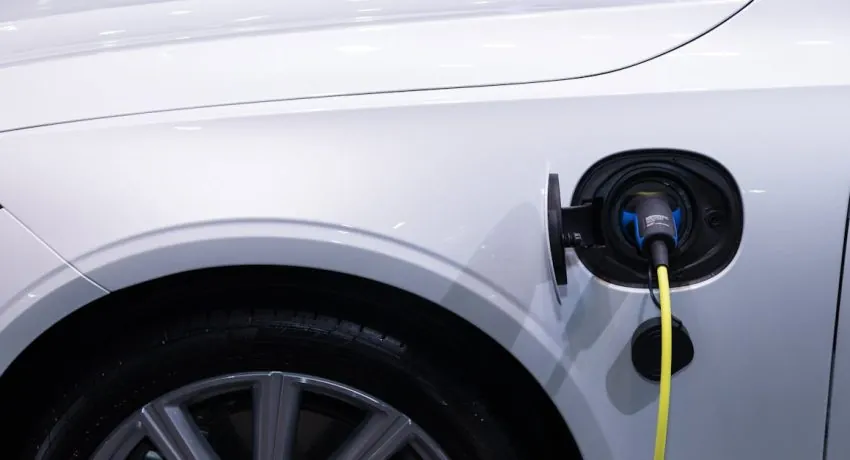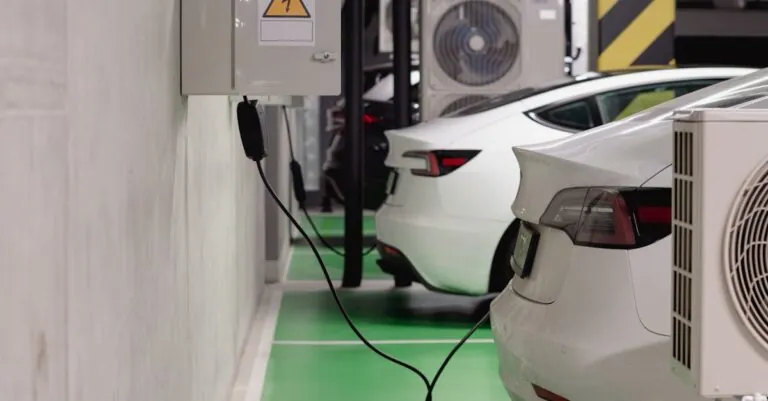As the world shifts toward greener options, car buyers face a pivotal question: should they go fully electric or opt for a hybrid? It’s like choosing between a superhero and their sidekick—both have their perks, but which one saves the day in your driveway?
Electric vehicles (EVs) promise a silent ride that’s as smooth as butter on a hot day, while hybrids offer the best of both worlds, blending gas and electric power like a perfect smoothie. With rising fuel prices and environmental concerns, making the right choice isn’t just smart; it’s essential.
So buckle up and get ready to navigate the exciting road ahead. Whether it’s the all-electric thrill or the hybrid convenience, understanding the differences will help drivers make a decision that’s not just good for their wallets but also for the planet.
Table of Contents
ToggleOverview of EVs and Hybrids
Understanding the differences between electric vehicles (EVs) and hybrids provides clarity for potential buyers. Each option presents unique benefits that cater to diverse preferences and needs.
Definition of Electric Vehicles
Electric vehicles operate solely on electric power, utilizing rechargeable batteries. These batteries enable users to travel significant distances without relying on gasoline or diesel. Emissions are minimal, contributing to reduced environmental impact. Rapid advancements in battery technology allow for improved range and efficiency. Popular models include the Tesla Model 3 and the Nissan Leaf, showcasing the growing acceptance of EVs in modern transportation.
Definition of Hybrid Vehicles
Hybrid vehicles combine both gasoline engines and electric motors to enhance efficiency and reduce emissions. These vehicles switch between power sources, optimizing fuel consumption based on driving conditions. Drivers experience versatility, enjoying electric-only operation at lower speeds while benefiting from the gasoline engine for longer trips. Models like the Toyota Prius and Honda Insight exemplify the hybrid approach, appealing to those seeking a balance between traditional and electric driving experiences.
Key Factors to Consider
When deciding between an electric vehicle (EV) and a hybrid, several key factors impact the choice. Cost of ownership and environmental impact influence long-term satisfaction.
Cost of Ownership
Initial purchase costs for EVs often exceed those of hybrids. While tax incentives can lessen the financial burden for EV buyers, maintenance expenses for electric vehicles tend to be lower due to fewer moving parts. Gasoline prices also affect hybrid ownership costs; higher fuel prices enhance the appeal of hybrid models. Resale values can fluctuate, as demand for EVs continues to rise. Evaluating financing options based on current incentives and potential savings through fuel efficiency can aid in making a prudent financial decision.
Environmental Impact
Electric vehicles produce zero tailpipe emissions, significantly reducing air pollution. Battery production can have environmental ramifications, but advancements in sustainable practices aim to mitigate these impacts. Hybrids emit fewer greenhouse gases compared to conventional vehicles, creating a middle ground. Evaluating the ecological footprint of both options includes considering local energy sources used for charging EVs. Prioritizing vehicles with better energy efficiency ratings contributes to making an environmentally responsible choice.
Performance Comparison
Understanding the performance of EVs and hybrids aids buyers in making informed decisions. Key metrics, such as acceleration and driving range, play significant roles in evaluating these vehicles.
Acceleration and Speed
Electric vehicles typically offer quicker acceleration than hybrids. Instant torque from electric motors enables many EVs to reach higher speeds more efficiently. For instance, the Tesla Model 3 performs 0 to 60 mph in just 3.1 seconds, showcasing impressive speed capabilities. While hybrids like the Toyota Prius excel in fuel efficiency, their acceleration tends to lag behind that of fully electric models. They generally have a slower response due to reliance on gasoline engines for initial power. EVs provide a sportier driving experience, appealing to those who prioritize performance.
Driving Range
Driving range represents another crucial factor. Hybrids tend to have an advantage here since they can switch between electric and gasoline power. This hybrid design allows ranges of up to 600 miles on a single tank of gas, depending on the model. Electric vehicles, however, heavily rely on battery capacity. The latest models like the Tesla Model S offer ranges exceeding 370 miles, yet this varies based on driving style and conditions. Charging infrastructure’s development also affects EV range perception; available charging stations impact driver confidence for longer trips. Overall, potential buyers should consider both performance and convenience when comparing these two vehicle types.
Maintenance and Reliability
Understanding maintenance and reliability matters when choosing between EVs and hybrids. Both vehicle types offer distinct advantages and considerations.
Maintenance Costs
Maintenance costs typically favor electric vehicles, as they feature fewer moving parts compared to hybrids. Services such as oil changes and exhaust system repairs aren’t required for EVs. Regular maintenance involves checking tires and brakes, ensuring expenses remain lower over time. Hybrids, however, combine both electric and gasoline components, leading to potential higher maintenance costs due to additional systems. According to a study from Edmunds, EVs save an average of $1,500 on maintenance over their lifespan. Budget-conscious consumers may find EVs more appealing due to reduced long-term costs.
Reliability Ratings
Reliability ratings play a crucial role in decision-making, as they indicate the dependability of each vehicle type. Research from J.D. Power reveals that many electric vehicles outperform hybrids in reliability. Models like the Tesla Model 3 consistently receive top rankings for dependability. In contrast, hybrids such as the Toyota Prius have proven their reliability over the years, remaining popular among consumers. Though hybrids may offer versatility, EVs increasingly demonstrate strong performance in reliability ratings, providing peace of mind for buyers.
Government Incentives and Rebates
Government incentives aim to encourage the adoption of EVs and hybrids. Various programs exist on both federal and state levels to support these purchases.
Federal and State Incentives
Federal incentives include a tax credit of up to $7,500 for qualifying electric vehicles. Many states offer additional credits or rebates, ranging from a few hundred to several thousand dollars. Some areas also provide exemptions from sales tax or access to carpool lanes. Furthermore, local programs may feature charging station installation incentives to ease the transition. These incentives significantly reduce the upfront cost, making both EVs and hybrids more appealing.
Long-Term Financial Benefits
Long-term financial benefits favor EVs due to lower maintenance costs and reduced fuel expenses. Electric vehicles generally require less servicing, which translates to savings estimated at $1,500 over their lifespan, according to Edmunds. Fuel costs also tip the scales, as charging an EV can be significantly cheaper than gasoline. In cities, drivers might access free charging stations or discounted home charging rates, boosting savings even further. Hybrids offer decent fuel economy, but ongoing gasoline expenses can add up over time. In comparison, long-term ownership costs of EVs often yield greater financial satisfaction.
Choosing between an electric vehicle and a hybrid ultimately depends on individual needs and preferences. EVs offer a cleaner, more efficient driving experience with lower maintenance costs and significant environmental benefits. On the other hand, hybrids provide versatility and extended driving ranges, making them appealing for those who may not have access to charging infrastructure.
As fuel prices rise and environmental concerns grow, making an informed choice is crucial. Evaluating factors like cost, performance, and sustainability will help potential buyers align their decision with their lifestyle and values. Whether opting for the innovative technology of an EV or the practicality of a hybrid, both options contribute to a more sustainable future.




